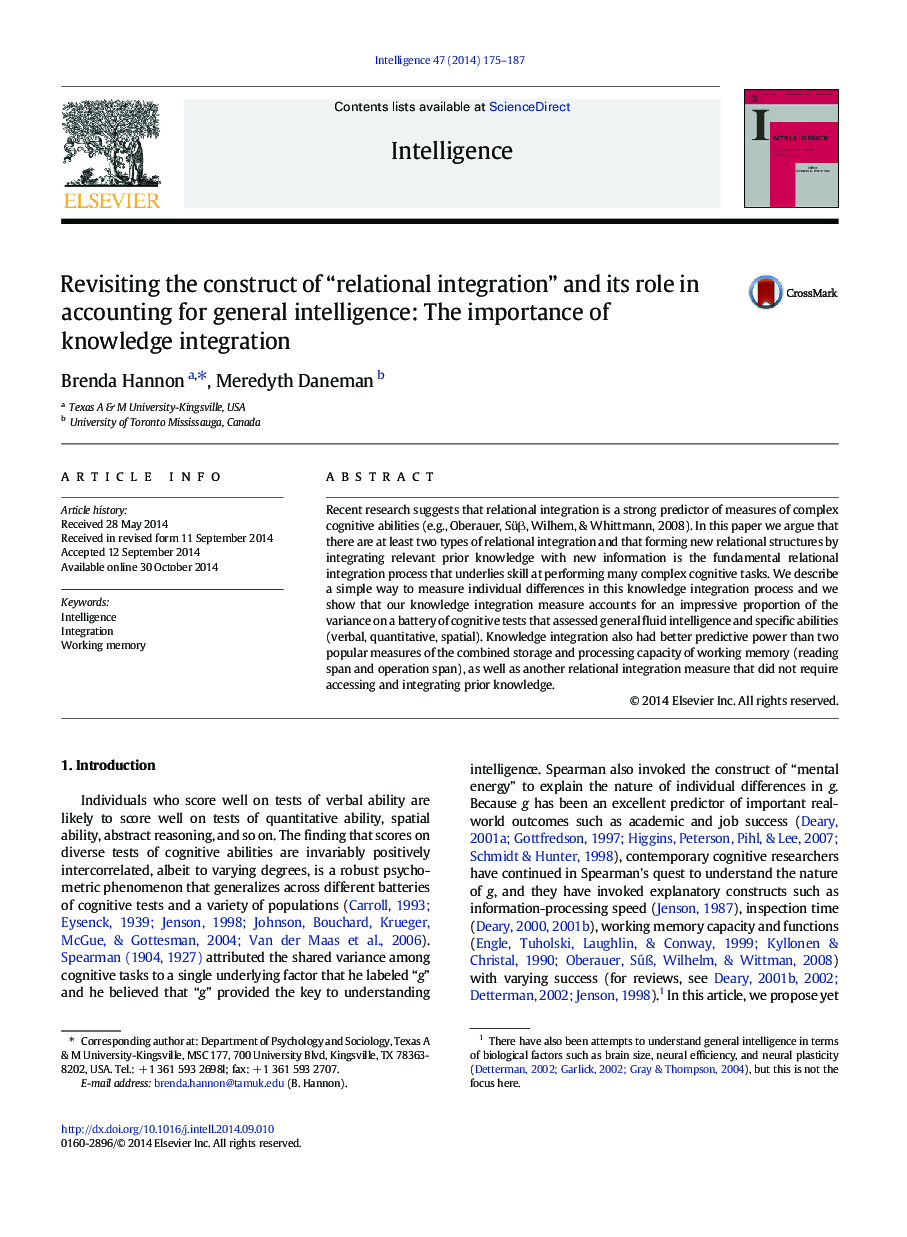| Article ID | Journal | Published Year | Pages | File Type |
|---|---|---|---|---|
| 929063 | Intelligence | 2014 | 13 Pages |
•Knowledge integration was an excellent predictor of fluid intelligence.•Knowledge integration was an excellent predictor of specific abilities.•Knowledge integration was better than working memory at predicting fluid intelligence.•Knowledge integration was better than working memory at predicting specific abilities.
Recent research suggests that relational integration is a strong predictor of measures of complex cognitive abilities (e.g., Oberauer, Süβ, Wilhem, & Whittmann, 2008). In this paper we argue that there are at least two types of relational integration and that forming new relational structures by integrating relevant prior knowledge with new information is the fundamental relational integration process that underlies skill at performing many complex cognitive tasks. We describe a simple way to measure individual differences in this knowledge integration process and we show that our knowledge integration measure accounts for an impressive proportion of the variance on a battery of cognitive tests that assessed general fluid intelligence and specific abilities (verbal, quantitative, spatial). Knowledge integration also had better predictive power than two popular measures of the combined storage and processing capacity of working memory (reading span and operation span), as well as another relational integration measure that did not require accessing and integrating prior knowledge.
